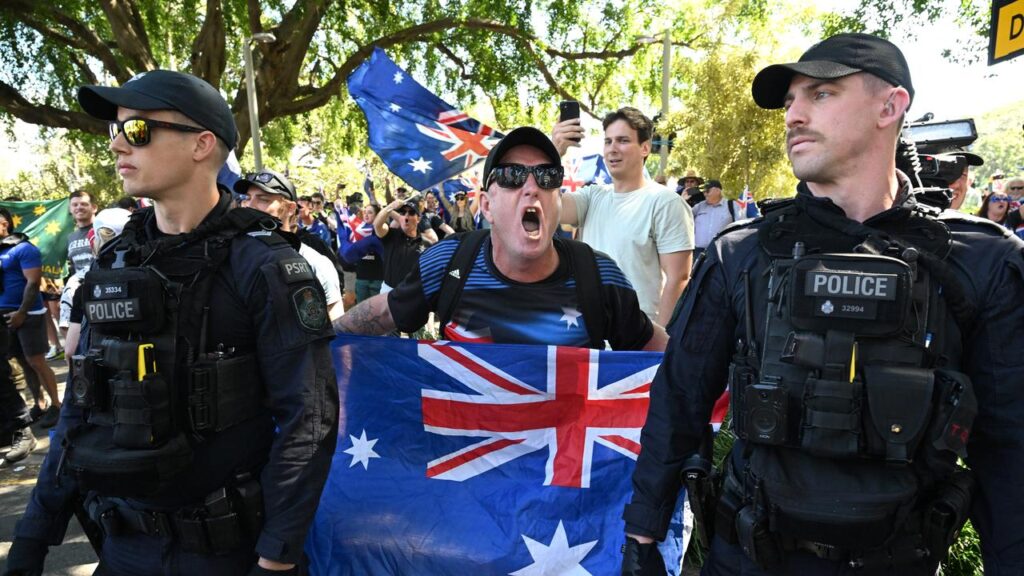Hopes local tensions will ease after Gaza ceasefire
Grace Crivellaro |

Deep-seated racism within Australia must be tacked as hopes grow of ongoing peace in the Middle East, the race discrimination commissioner says.
Supporters of Palestine and Israel in Australia have cautiously welcomed a ceasefire in Gaza as the first step towards meaningful peace in the region.
Australian Human Rights Commission race discrimination commissioner Giridharan Sivaraman hopes the news will lessen division closer to home.
“I hope with the ceasefire we find … a lessening of the immediate impacts of some of the dehumanisation and othering,” he told AAP.
“But I think that these problems will remain because they’re structural problems.”

The commission’s consultations with Jewish, Arab, Muslim and Palestinian communities, as part of the Seen and Heard project, revealed instances of physical assault, online abuse, and feelings of fear, isolation and being “othered” following the Israel-Hamas conflict.
Compounding these experiences is the feeling they are neither acknowledged nor validated by leaders and the broader community.
“If you don’t recognise the suffering of people that are killed or affected by starvation or affected by acts of terrorism then by extension, you dehumanise people here that identify with those that are suffering,” Mr Sivaraman said.
He called on the government to establish a National Anti-Racism Taskforce, which is a key recommendation in the “first of its kind” national anti-racism framework, handed down by AHRC last November.
“For too long we have just had an ad hoc, piecemeal approach to tackling racism, and it’s not proving effective,” Mr Sivaraman said.”If you step back and look at the last five years, in 2020, violence and interpersonal racism poured onto our streets against people of Chinese origin.
“In 2023, it poured out against First Nations people (during the Voice referendum).
“If you had to step back and look at the whole picture, you must recognise that we’ve got deep rooted, structural and institutional problems that allow this racism to continue to occur on a regular basis.”

Israel’s government approved the US-brokered ceasefire on Friday, with the agreement to come into effect within 24 hours.
Under the deal, Hamas will release the remaining Israeli hostages it has been holding in Gaza since October 7, 2023, and Israel will free nearly 2000 Palestinian prisoners.
Prime Minister Anthony Albanese warned it was early days but expressed relief there was finally hope of peace, which he attributed to US President Donald Trump.
“This is a fragile situation, of course, but what it has needed, and we’ve said this for some time, is of course US leadership,” he told Nine’s Today program.
Mr Albanese is taking a week of leave before jetting off to Washington DC to meet with President Trump at the White House where defence, minerals and other economic issues are on the agenda.
Prominent Muslim community leader and GP Jamal Rifi was also relieved at the ceasefire but pointed out events in Gaza over the past two years had impacted negatively on Australia’s social cohesion.

He remained optimistic about the nation’s ability to heal prompted by positive conversations happening between Muslim, Arabic and Jewish communities.
“What binds us as Australians is far more stronger than each person’s point of view regarding the conflict,” Dr Rifi told AAP.
“It’s not going to be as easy going but I believe the world and the peace-loving countries, they see now that a two-state solution is the way to end the Middle East conflict.”
AAP